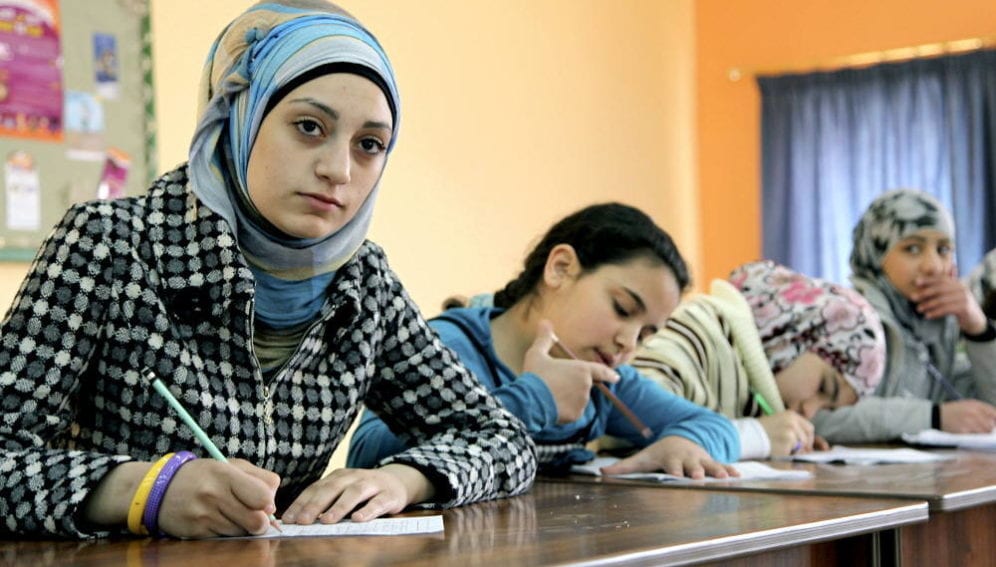By: Imogen Mathers
Send to a friend
The details you provide on this page will not be used to send unsolicited email, and will not be sold to a 3rd party. See privacy policy.
Among the 3.9 million refugees displaced by Syria’s devastating civil war, one group often overlooked by aid efforts is the country’s young people. An article last week discussed the plight of young Syrian refugees in Egypt, where — despite the government’s decision to waive student fees for Syrians — university largely remains elusive.
Barriers to higher education are high and numerous for refugees across the Middle East: incompatible qualification systems, expensive fees and the need to prioritise earning over studying.
“Young people are always missed in emergencies,” says Emma Bonar, who works for humanitarian NGO the Norwegian Refugee Council in Jordan, where she organises education and skills programmes for young Syrians.
“The gap between need and provision is astronomical.”
Emma Bonar, Norwegian Refugee Council in Jordan
When it comes to higher education, the humanitarian response is even more myopic, she says, with most education aid directed at primary level. She argues it’s just as important to keep higher education as an option: “Why would you go through secondary level if there’s nothing at the end?”
The international community’s “classic response” during refugee emergencies is to offer young people scholarships to universities in other countries — sometimes far away and usually in an uncoordinated, sporadic fashion. But Bonar says this approach falls short given the scale of the Syrian crisis.
Across the Middle East, a fifth of the Syrian refugees — around 780,000 people — could be described as ‘youth’ (that is aged roughly between 15 and 24), Bonar says. There may be 200,000 of them in Jordan alone and, of these, 23 per cent were enrolled in Syrian universities prior to the war.
Yet last year just 100 university scholarships were offered to Jordan’s 50,000 eligible students. “The gap between need and provision is astronomical,” says Bonar.
Furthermore, this approach is often inappropriate. Young people are already displaced and, because they tend to be energetic, higher earners, and good for “holding communities together”, having them leave home and family isn’t a good idea, Bonar says.
“We really need more alternatives to this approach,” she says. “We don’t want them taken away to do courses abroad, from which they may never return. We want solutions on the ground.”
Information and communications technologies (ICTs) have been underutilised for many years in refugee response, but can unlock higher education, Bonar says.
New ICT- and web-driven courses could help Syrian refugees by combining classroom teaching and distance learning in what’s known as ‘blended learning’. Class overseers with basic teaching skills could be equipped with course content delivered from international universities through massive online open courses (MOOCs) or open-source learning platforms such as Moodle, and then translated into Arabic and adapted according to context.
“If universities were to put the money [earmarked for scholarships] instead into opening up online courses, they’d reach ten times more students,” Bonar says.
“If universities were to put the money [earmarked for scholarships] instead into opening up online courses, they’d reach ten times more students.”
Emma Bonar, Norwegian Refugee Council in Jordan
She suggests that UN agencies and education ministries in the region join forces to create an umbrella system for coordinating these online platforms, so making it easier for international universities to participate. They could also organise an accreditation system to transcend the problem of variation between education systems in the Middle East, so that Syrian exam qualifications are recognised, she says.
But getting this to happen requires showing donors that the approach works, Bonar says. So in partnership with the University of Geneva, Switzerland, the Norwegian Refugee Council has been evaluating programmes designed to teach refugee students how to use distance learning courses in Iraq, Jordan, Kenya and Lebanon.
Imogen Mathers is reporter/producer at SciDev.Net. @imogenmathers














